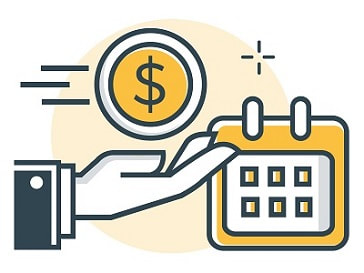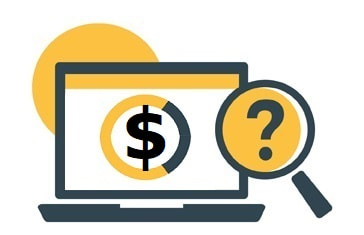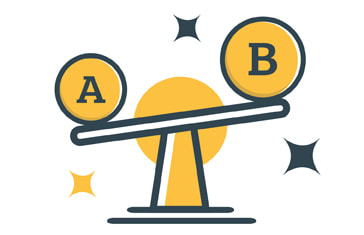How to Claim a Tax Refund - The Definitive 2024 & 2025 New Zealand Guide
Our guide explains how the IRD makes tax refunds easy, dispels myths and answers an extensive selection of frequently asked questions.
Updated 30 March 2024
Summary
The basics of taxes and tax refunds
This guide covers tax refunds specifically, but see our other guides regarding taxes below: Our guide covers:
- Tax refunds are a welcome surprise to many New Zealanders at the end of the tax financial year. However, they can also be quite confusing, and many New Zealanders often wonder why they're owed one in the first place.
- But if you do find out you're owed a refund, you're probably keen for it to hit your bank account as quickly as possible.
- This guide explains the basics of tax refunds, how the Inland Revenue Department (IRD) processes them, how long you’ll have to wait for your tax refund and what you need to do to receive them. We also walk through frequently asked questions regarding tax refunds.
The basics of taxes and tax refunds
- New Zealand tax operates under a Pay As You Earn (PAYE) structure that deducts taxes from your wages before the money hits your bank account. Your payslip should have a separate section breaking down the gross (before tax) and net (after tax) amounts.
- PAYE means that throughout the year, you will be paying tax to the IRD as you earn your weekly wage. At the end of the year, for most people, the IRD will automatically calculate what tax should have been paid for your total earnings from that year. There are three outcomes from this:
- You've paid less than you should, and the IRD will ask you to pay additional tax.
- You have paid the exact amount of tax you should have and don’t need to do anything.
- You have paid more than you should, and the IRD will refund a portion of the tax paid to your bank account. You don’t need to do anything.
This guide covers tax refunds specifically, but see our other guides regarding taxes below: Our guide covers:
Know This First: The automatic tax refund process in New Zealand makes things easy for many people
- The IRD has streamlined the process of submitting and calculating tax returns/refunds in New Zealand such that you may not even have to do anything at the end of the tax year.
- The IRD automatically calculates and generates your tax return based on the information gathered and the expected earnings and taxes paid. If you review their tax assessment as correct (meaning you have no other information to disclose), you don’t need to do anything. If you have an account with myIR and have bank account information, they’ll deposit your refund into your account once the tax return has been processed. The IRD will contact you through myIR if they need your bank account details.
- Your refund will be automatic if your income is sourced from employment (salary and wages), benefits (income-tested) or Superannuation, among others. For a comprehensive list of the sources of income that lead to automatic tax returns, check that out here on the IRD’s page.
How Long Will it Take For Me to Receive My Tax Refund?
There is a range of factors that may influence how long it takes for you to get ahold of your tax refund. For example, the processing times for tax refunds vary depending on the staffing resources at the IRD and how many tax refunds they need to process. In addition, additional factors may slow down the processing of tax refunds, such as errors, incomplete returns or fraud.
Generally, the IRD can process your tax assessment within ten weeks. If your tax refund has not arrived by this time, it's recommended to contact the IRD through myIR. However, this varies from year to year. You can find their processing times for a more accurate estimate of how long it will take for the IRD to pay your tax refund.
Typically, the IRD processes income tax returns from May to July and will pay out tax refunds around the same period. However, because they process returns on a rolling basis, New Zealanders will not always get their tax refunds simultaneously.
Below is an approximate breakdown of the timeline to receive your tax refund based on 2022 processing times:
Generally, the IRD can process your tax assessment within ten weeks. If your tax refund has not arrived by this time, it's recommended to contact the IRD through myIR. However, this varies from year to year. You can find their processing times for a more accurate estimate of how long it will take for the IRD to pay your tax refund.
Typically, the IRD processes income tax returns from May to July and will pay out tax refunds around the same period. However, because they process returns on a rolling basis, New Zealanders will not always get their tax refunds simultaneously.
Below is an approximate breakdown of the timeline to receive your tax refund based on 2022 processing times:
- The tax financial year finishes – on March 31st
- IRD processes income tax assessments – from May to July
- When additional information is requested – May to July
- When you can expect a refund – July (estimated)
Tax Refunds - Myths vs Facts
Myth: The IRD takes FOREVER to issue a refundReality: Any refund will be paid in June or July if you have submitted the correct information. The IRD works best when you play your part and help it out.
|
Myth: There’s no way to monitor what is happening with your tax refund until it gets paidReality: The IRD takes April and May to fully calculate your tax position, and provides timing details. In almost all cases, the tax refund is paid in July.
The IRD’s work is to make sure your tax details are complete. If you have overpaid income tax on interest and/or dividends from investments, the IRD is committed to calculating the over-payment and returning it to you.
|
Tax Refunds - Frequently Asked Questions
You may still have questions; we have answered a few common concerns below:
I received money for a tax refund but haven’t received confirmation of my income tax assessment. Is this legitimate?
The IRD can sometimes send your tax refund money to your bank account before your income tax assessment has been sent to you. However, in most circumstances, you will get your income tax assessment before the tax refund hits your bank account.
What are the alternatives to getting the IRD to calculate my tax return?
For New Zealanders that have more complex tax situations or that want more control over their tax situation, the two main alternatives to the IRD’s automatic calculator are:
1. Get a professional tax accountant to complete your tax return
2. Do Your Tax Return Yourself
1. Get a professional tax accountant to complete your tax return
- Hiring a tax accountant to fill out an IR3 (if your situation requires it) and communicate with the IRD can be a cost-efficient and stress-free way to get a tax refund without the hassle.
- See our detailed guide on choosing an accountant here to learn more.
2. Do Your Tax Return Yourself
- The IRD makes it easy to “DIY” your income tax return (IR3). They have created an online form that saves time and reduces hassle.
- However, the process can get increasingly complex if you have multiple incomes and deductions that you need to make.
- To find out more information about filling out an IR3 form, check out the IRD's website.
When is The New Zealand Tax Year?
The New Zealand tax year consists of 12 months, starting on April 1st and ending on March 31st. Therefore, tax returns are eligible to be filed after March 31st (typically three months after tax-year-end).
How much money will my tax refund give me? How is it calculated?
The size of your tax refund will depend on:
- The level of earnings you generated
- The length of time you’ve worked
- The kind of work undertaken
- The tax that has already been deducted from your wages
Can I check previous tax returns to see if I’m owed a tax refund?
Individuals can check for any tax refunds for four years from the current tax financial year. The best place to go to check if you’re due a tax refund is myIR. If you don’t have a myIR account, contact the IRD.
How can I see if I have a tax refund?
The easiest way to check and see if you have a tax refund is to log into Inland Revenue’s myIR platform here.
What should I do with my refund? Are there any restrictions on the money?
The cash from your tax refund is yours to use as you see fit. Some people go out and celebrate a bit of extra cash. Others save the additional cash for a rainy day or pay down credit card debts. Of course, many will do a mix of both.
Can I speed up my tax refund?
Most of the time, if you’re going with the automatic tax assessment, there’s nothing you can do to speed up the tax refund. The IRD must process your tax return before you can action anything.
However, if the IRD has asked for more information, they will not be able to pay it out unless they have received it. Therefore, the quickest way to get ahold of your refund is to stay on top of your communications with the IRD through myIR and provide all relevant information about your tax return as soon as possible.
However, if the IRD has asked for more information, they will not be able to pay it out unless they have received it. Therefore, the quickest way to get ahold of your refund is to stay on top of your communications with the IRD through myIR and provide all relevant information about your tax return as soon as possible.
I received confirmation that I'm getting a $1,000 tax refund. As I only pay tax with PAYE, I’m curious to know how has this happened?
A tax refund can happen due to one or many factors. For example, did you take a break during the year, go overseas for an extended period, change jobs and/or work more hours than you planned to? These can be just some of the reasons.
While a sizeable refund may seem as unusual as it is appreciated, the IRD is the ultimate authority and knows more than any Payroll officer or accounts person at your employer. Their calculation of whether you’ve paid too much or too little tax is the only thing that matters.
While a sizeable refund may seem as unusual as it is appreciated, the IRD is the ultimate authority and knows more than any Payroll officer or accounts person at your employer. Their calculation of whether you’ve paid too much or too little tax is the only thing that matters.
My tax assessment says I am due nothing, do I need to do anything else?
PAYE is fairly accurate if you have been in stable employment and have not had a pay rise or experienced any irregularities. If you had a regular pay period (week, fortnight, month) for the same amount for the whole year (April 1st to March 31st) then you will have a lower likelihood of a tax refund.
The more you deviate from the situation above, the larger the possibility of being due a tax refund. For example, not working for half of the year, going on maternity leave (see below) or taking a second job for part of the year all increase your likelihood of a tax refund.
The more you deviate from the situation above, the larger the possibility of being due a tax refund. For example, not working for half of the year, going on maternity leave (see below) or taking a second job for part of the year all increase your likelihood of a tax refund.
I went on maternity leave within the tax year. Am I due a refund and is it easy to do?
Maybe. If PAYE has been paid all year based on the full year salary despite not working for a full year, a refund is likely. Even if you’ve claimed benefits from WINZ, the IRD will have a record of everything and ultimately a tax refund is more than likely. With myIR you’ll be able to register, log in and follow the simple process that calculates your refund due. Every year, women on maternity leave receive some of the most sizeable tax refunds.
When do I have to do my tax return?
If you’re self-employed or generate income from sources not listed on the IRD’s list (which you can find find here), you won't get an automatic income tax assessment. Instead, you must complete an individual tax return (an IR3 form), found here.






